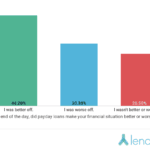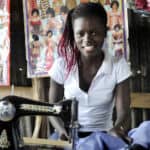The Hidden Value of Untapped Ideas: Three Development Sector Approaches that Deserve a Second Look
The job creation challenge facing African countries is unprecedented in human history. While recent years have witnessed some incredible progress – for the first time since the launch of the Sustainable Development Goals (SDGs) more Africans are escaping poverty than falling or being born into it – this progress is hampered by a host of challenges. Income inequality is widening across the continent, youth unemployment remains stubbornly high, and burgeoning megacities face crippling infrastructure gaps – while 18 million jobs need to be created annually to absorb new market entrants.
Tackling these (and other) development challenges will require innovative responses – yet “innovative” may not necessarily mean “new.” In the same way that styles we thought were left safely in the 1980s are making their way back into people’s closets today, “big ideas” in development tend to go in and out of style. And some promising ideas never reach transformative scale in the first place, since they don’t conform with preconceived notions of what development work should be. Reconsidering business approaches to development that have faded from the public discourse, or that have failed to fully take off despite great promise, may hold the key to solving some of Africa’s biggest challenges. The following three ideas are a great place to start.
Reviving the Franchising Model in Social Enterprise
Business franchising has been stymied by poor contract enforcement in emerging markets. But the approach should be actively explored, given that the “business in a box” model can be used to overcome quality and consistency issues in delivering goods or services, both public and private, across geographies. A 2002 report by the African Development Bank extolled the promise of franchising for economic development, and the topic was studied in-depth by Dalberg and Templeton Foundation in 2009 – yet the idea seems to have disappeared from development community discussions not long after.
For firms, franchising reduces financing and monitoring demands – crucial factors in economies with underdeveloped financial markets and volatile currencies – while individuals benefit from the lower risk associated with established brands, and the shorter learning curve that comes with guidance and support from headquarters. Additionally, their rapid scalability makes franchises attractive options for quickly increasing the distribution of public goods: for example, the creation of quality schools or clinics.
Successfully expanding in frontier markets requires an adaptive expansion structure, innovative approaches to managing revenues and costs across vastly different markets, and an in-depth understanding of cultural norms and expectations across new markets. Yet companies such as Nando’s – a South African chicken chain – and KFC have shown that franchisers can thrive on the continent. Nando’s has successfully expanded to five African countries, finding success in markets such as Zimbabwe known mostly for their instability; KFC has spread to over 20 African markets, adapting their menus to fit the unique tastes of each country along the way. These franchises, along with other global brands such as Domino’s and Pinkberry, have created thousands of jobs – Nando’s has some 10,000 employees in South Africa alone. They form a much-needed source of tax revenues in African markets, often working with local partners to prioritize job creation for unemployed and previously disadvantaged communities.
While established brands work to seize market opportunities in developing countries, microfranchising and franchising social enterprises offer valuable opportunities in remote employment and the last-mile provision of public goods. For instance, Boutik Sante, a social franchise of community health stores in Haiti, has expanded access to nutrition and health products and services to hundreds of thousands of Haitians, while providing store owners with a reliable source of income. While these socially oriented businesses typically require outside assistance from NGOs or governments, they are still profit-oriented, implementing a business model that can lead to self-sustainability.
Prizes that Lead to Scale in Development
When Elon Musk announced his plans for hyperloop – a futuristic transportation method promising speeds of up to 600 mph – in 2013, it was viewed as “dead on arrival” by some and as far too expensive to ever be practical by others. Yet today, several firms are taking preliminary steps to set up routes for this once “impossible” idea.
A series of competitions in the intervening years were crucial to bringing this futuristic idea into reach. These competitions have helped keep the project in the public eye, as competitors achieved increasingly eye-popping speeds – while giving Musk a reliable source of innovation and talent that has helped him remain ahead of his competitors. Indeed, while the competition has offered some cash prizes to top teams, the real prize was exposure to recruiters and top engineers from Musk’s established companies, SpaceX and Tesla, who could provide implementation capacity.
There are a number of socially oriented competitions already in place that are driving innovation and helping new ideas get off the ground. But while the use of competitions has proliferated among governments, foundations and the development industry, the prize winners rarely reach sustainable scale, as they do in the case of private sector prize schemes like Musk’s. For example, the annual Hult Prize, dubbed the “Nobel Prize for Students,” offers $1 million in startup funds to a socially oriented, for-profit business model – and the results can be impactful: The 2018 winners delivered a ready-to-launch solution for reducing rice waste and decreasing malnutrition in South East Asia. However, it is too early to see if the company will raise venture capital and scale beyond its initial four founders. Similarly, USAID’s Grand Challenge for Development has awarded over $508 million in grants and assistance to fund development programs across 60 countries – but of the 10 grand challenges (most of which are closed now) it is hard to find any companies that have scaled in a meaningful way. The next iteration of prizes need to focus on scalability.
Competitions in public health seem more promising at spurring scalable innovation. A mix of prizes and advanced market commitments has encouraged additional research in neglected tropical diseases, and the Gates Foundation has offered cash prizes to innovators developing new solutions for everything from water filtration to eco-friendly toilets. But how those toilets and filtration systems are produced, distributed and maintained in low-income markets will determine the long-term success of the initial prize money investments.
As competitions across a range of other sectors continue to grow in popularity, governments and organizations should take steps to develop prizes aimed at scaling the innovations produced, by learning from a growing body of research on how to make prize structures more effective. The key ingredients seem to be the deep involvement of players that already have operational scale, e.g. the private sector, the defense establishment and large universities. Offering prizes for sustainable and scalable businesses addressing any of Africa’s host of pressing challenges – from the infrastructure gap to youth employment to climate displacement – could lead to crucial breakthroughs and improve the economic fortunes of millions.
Leveraging Lotteries to Solve Development Challenges
Using lotteries as a driver for economic development seems paradoxical at first; they’re routinely associated with preying on low-income individuals with low levels of financial literacy. However, accepting the fact that poor people play lotteries as a given can lead to innovative approaches for using them to drive developmental outcomes like tax compliance – and even encouraging savings.
Value Added Taxes (VAT) represent around one-third of global tax revenue, yet in emerging markets, compliance with VAT laws is uneven at best: Of the 24 countries with data in 2018, half of them were missing out on more than 50% of their potential VAT revenues. Printing lottery tickets on the back of receipts can make tax-compliance “fun,” at least for the consumers. This encourages customers to ask for a receipt with their purchase, helping to ensure tax compliance by providing an opportunity for individuals to turn their daily purchases into a shot at a larger prize. These schemes are beginning to spread across Eastern and Southern Europe, and they hold incredible promise for emerging countries looking to expand their tax base.
Prize-linked savings offer another development-friendly take on lotteries. By offering people “prizes” instead of interest rates, they have been driving traditionally unbanked individuals to begin depositing money in North America, once again relying on the “fun factor” to encourage positive financial behavior. They are also “actuarially fair,” paying out in prizes the same amounts that would have been awarded in interest to depositors, while attracting individuals who would likely never begin saving.
Lotteries – and gambling more generally – have become increasingly popular across Africa in recent years; nine countries currently hold national lotteries, while international lotteries have found new players on the continent. Yet governments and development partners have yet to embrace the social impact potential of lotteries by creating the right policies. Indeed, some countries have put the brakes on lottery-based programs even after they’d demonstrated success: For instance, South Africa’s government shut down a bank program that was substantially boosting the savings of poor customers, after determining that it violated the country’s Lottery Act. Leveraging people’s lottery playing to increase tax bases and encourage positive economic behavior should be a no-brainer.
From job creation to inequality, the gravity of Africa’s development challenges in the 21st century requires radical thinking and experimentation with ideas both new and old. It’s time the social impact sector realized the untapped value of ideas that have been discarded, misunderstood or underutilized, whose potential has yet to fully emerge.
Aubrey Hruby is a senior fellow with the Atlantic Council’s Africa Center.
Photo: A KFC in Swaziland, courtesy of Flickr Creative Commons.
- Categories
- Social Enterprise, Transportation



